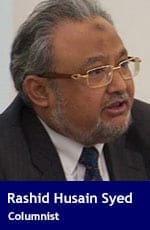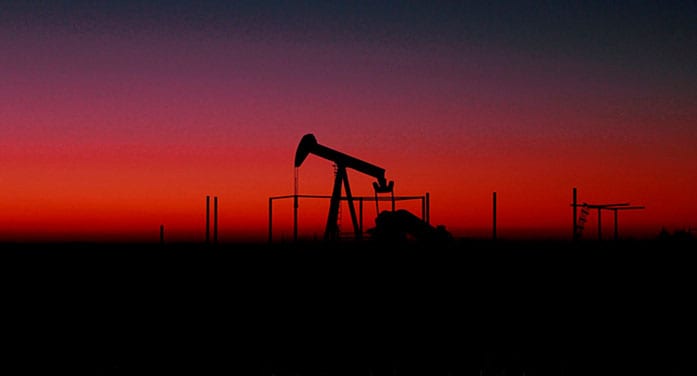 All eyes are focused on the Organization of Petroleum Exporting Countries and its allies in OPEC+ as they meet today. With crude oil prices touching US$80 a barrel and prospects of hitting US$100 this winter looming large, markets are on edge.
All eyes are focused on the Organization of Petroleum Exporting Countries and its allies in OPEC+ as they meet today. With crude oil prices touching US$80 a barrel and prospects of hitting US$100 this winter looming large, markets are on edge.
The market trajectory is virtually impossible to delineate.
A global energy crunch could help propel oil prices above US$100 a barrel for the first time since 2014 and spur a global economic crisis, reports Bank of America.
The boost in crude oil prices would be driven by three factors:
- switching from gas to oil because of high gasoline prices;
- a jump in crude consumption over a cold winter;
- higher aviation demand as the United States reopens its borders.
“If all these factors come together, oil prices could spike and lead to the second round of inflationary pressures around the world,” Bloomberg reported, quoting analysts, including Francisco Blanch. “Put differently, we may just be one storm away from the next macro hurricane.”
 In the meantime, issues about how much OPEC+ could add to its output continue to confound analysts. Bob Yawger at Mizuho Financial Group said there are questions about whether members could add supply.
In the meantime, issues about how much OPEC+ could add to its output continue to confound analysts. Bob Yawger at Mizuho Financial Group said there are questions about whether members could add supply.
But there are practical restraints. Only a few members can afford to increase production. “So, it’s really paying lip service to say you can increase significantly,” Yawger said.
The surge in gasoline prices has hit the oil market hard.
Gas prices are hovering around US$190 a barrel. So some large gas consumers – electricity generation, heating and manufacturing, for example – are being forced to switch from gas to oil products.
Surging liquefied natural gas (LNG) prices are also prompting utilities across Asia and the Middle East to burn more high-sulphur fuel oil than usual. Generators in major consuming areas like Pakistan, Bangladesh and the Middle East have reportedly started switching fuels. Pakistan’s fuel oil imports this year are reportedly already about 65 per cent above 2020 levels.
Lack of progress on negotiations between Iran and the U.S. on a nuclear deal also dampens the possibility of additional oil supplies from Iran in the immediate term. That means the world is relying on OPEC+ even more than usual to meet its needs.
So political pressure on OPEC+ is growing.
“Obviously, the price of oil is of concern,” White House press secretary Jen Psaki said last week. High oil prices were on national security adviser Jake Sullivan’s agenda when he met with Saudi Crown Prince Mohammed bin Salman, Psaki said.
Concern in China, the world’s largest crude importer, is also growing. China faces a potential economic slowdown because of the debt crisis enveloping property developer Evergrande and a growing power shortage, leading to rising crude prices hitting factories, homes and supply chains.
In an unprecedented move – and what’s being called a message to OPEC and its allies that the current crude price trajectory is unacceptable – China announced it was selling oil from its strategic reserves. While that didn’t lower prices, it did send a powerful message.
But OPEC+ seems to be taking its time opening its taps more than what has already been announced – 400,000 barrels per day of additional output every month until the entire output cut of 5.8 million bpd is accounted for.
OPEC+ is first likely to wait to see if the natural gas deficit bolsters oil demand “materially” before speeding up the return of crude output, said Amrita Sen, chief oil analyst at Energy Aspects Ltd. In a COVID-19-afflicted world, OPEC+ eyes would remain fixed on oil demand patterns.
But OPEC+ is also aware that any further spike in crude prices – just weeks before world leaders gather for a fresh round of climate talks to shift the world away from fossil fuels – could be disastrous for oil fortunes as it boosts political support for the transition to renewable energy.
At best, OPEC+ could seek to reach a crude oil production midpoint.
Toronto-based Rashid Husain Syed is a respected energy and political analyst. The Middle East is his area of focus. As well as writing for major local and global newspapers, Rashid is also a regular speaker at major international conferences. He has been asked to provide his perspective on global energy issues by both the Department of Energy in Washington and the International Energy Agency in Paris. For interview requests, click here.
The views, opinions and positions expressed by columnists and contributors are the authors’ alone. They do not inherently or expressly reflect the views, opinions and/or positions of our publication.
© Troy Media
Troy Media is an editorial content provider to media outlets and its own hosted community news outlets across Canada.

